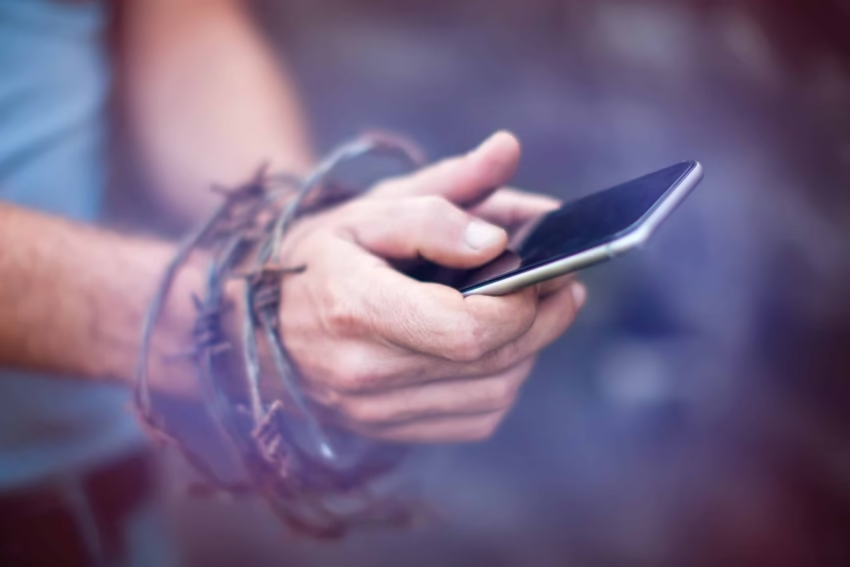In today’s hyper-connected world, social media has become an integral part of our daily lives. While it offers countless benefits, such as staying connected with loved ones and accessing information, it also has a dark side: addiction. Social media addiction is a growing problem, with millions of people spending hours each day scrolling through feeds, liking posts, and chasing the next dopamine hit.
But how do you know if you’re truly addicted? And more importantly, how can you break free? In this article, we’ll explore the 10 most common signs of social media addiction and provide actionable tips to help you reclaim your time and mental health.
1. You Check Your Phone First Thing in the Morning
Do you reach for your phone the moment you wake up, even before brushing your teeth or saying good morning to your partner? This is one of the most common signs of social media addiction. Starting your day with a screen floods your brain with dopamine, setting the tone for a day filled with constant scrolling.
Tip: Try replacing your morning scroll with a healthier habit, like meditation, journaling, or a quick workout.
2. You Feel Anxious Without Your Phone
Do you feel uneasy or anxious when you don’t have your phone nearby? This phenomenon, often called “nomophobia” (no-mobile-phone phobia), is a clear sign of dependency. Social media addiction creates a psychological need to stay connected, making it hard to disconnect even for a short time.
Tip: Practice leaving your phone in another room for short periods to build tolerance to being offline.
3. You Spend Hours Scrolling Without Realizing It
Have you ever opened Instagram or TikTok “just for a minute,” only to realize an hour has passed? This time distortion is a hallmark of social media addiction. Platforms are designed to keep you engaged, using endless feeds and autoplay features to hijack your attention.
Tip: Set a timer or use screen time tracking apps to monitor and limit your usage.
4. You Neglect Responsibilities
Are you skipping work, chores, or even social events to spend more time on social media? When scrolling starts interfering with your daily responsibilities, it’s a red flag that your usage has become problematic.
Tip: Prioritize your tasks and reward yourself with social media time only after completing them.
5. You Compare Yourself to Others Constantly
Social media is a highlight reel, and it’s easy to fall into the trap of comparing your life to others’ curated posts. If you find yourself feeling inadequate or envious after scrolling, it’s a sign that social media is affecting your self-esteem.
Tip: Unfollow accounts that make you feel bad about yourself and follow ones that inspire or uplift you.
6. You Feel Compelled to Share Everything
Do you feel the need to document and share every moment of your life online? This compulsion to post can indicate an unhealthy reliance on social media for validation and approval.
Tip: Practice being present in the moment without feeling the need to share it. Ask yourself, “Will this post add value to my life or others’?”
7. You Lose Sleep Over Social Media
Scrolling late into the night is a common habit for social media addicts. The blue light from screens disrupts your sleep cycle, making it harder to fall asleep and stay asleep.
Tip: Establish a “no phones in the bedroom” rule and create a relaxing bedtime routine.
8. You Ignore Real-Life Interactions
Are you more focused on your phone than the people around you? This behavior, known as “phubbing” (phone snubbing), can damage your relationships and make you miss out on meaningful connections.
Tip: Designate specific times to check your phone and prioritize face-to-face interactions.
9. You Feel Withdrawal Symptoms When Offline
Do you feel irritable, restless, or even depressed when you’re unable to access social media? These withdrawal symptoms are a clear sign of addiction, as your brain craves the dopamine hits it’s used to receiving.
Tip: Gradually reduce your screen time to minimize withdrawal symptoms and retrain your brain.
10. You’ve Tried to Quit Before but Failed
Have you attempted to cut back on social media but found yourself returning to old habits? This cycle of quitting and relapsing is common among addicts and highlights the powerful grip social media can have on your life.
Tip: Start small by setting achievable goals, like reducing your daily usage by 15 minutes each week.
How to Break Free from Social Media Addiction
Breaking free from social media addiction isn’t easy, but it’s absolutely possible. Here are some actionable steps to help you regain control:
- Set Clear Boundaries: Designate specific times for social media use and stick to them.
- Delete Apps Temporarily: Remove social media apps from your phone for a week or two to reset your habits.
- Find Alternatives: Replace scrolling with activities that bring you joy, like reading, exercising, or spending time with loved ones.
- Practice Mindfulness: Be present in the moment and notice when you’re reaching for your phone out of habit.
- Seek Support: Talk to friends, family, or a therapist about your struggles.
Conclusion
Social media addiction is a real and growing problem, but recognizing the signs is the first step toward breaking free. By setting boundaries, finding healthier habits, and seeking support, you can reclaim your time, mental health, and life. Remember, it’s not about quitting social media entirely—it’s about using it mindfully and intentionally.
